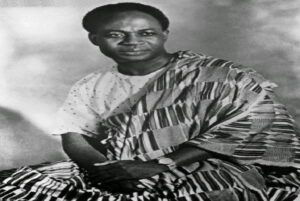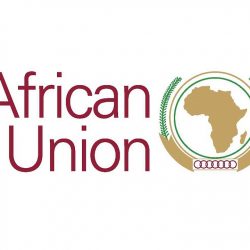JOHN KABES
John Kabes [c.1670-1734] of Komenda [Eguafo] a trading port 15 mi [24km] west of Cape Coast was ruler of Kabeskrom [literally “Kabes Town” a township built around the castle at Komenda] trader, farmer, owner of important salt pans, and a successful broker who often played a decisive role in the inter-European rivalries of the region in the earlier years of the 18th century.
The details of his early life are obscure, but he served the Dutch for some years before becoming an independent trader from 1683 onwards. He exploited the rivalries of the European companies established at Komenda and took advantage of the Komenda stool disputes to become the most powerful political figure there.
The Dutch-who in 1688 had established Fort Vredenburg at Komenda without asking permission of the Africans-resented his power and in 1694 found a pretext to launch the Dutch-Komenda war of 1694-96 in order to break him. But after the first battle he invited the English back to Komenda to reoccupy the fort that they had abandoned there some years before as a result of which they became firmly entrenched at little Komenda [a part of Komenda, to the west]. With the return of peace, Kabes rebuilt the town which had been destroyed in the fighting.The Dutch who had been defeated in the fighting remained at Dutch-Komenda.
Kabes became the most important corn trader of the time. But salt was his greatest source of wealth, and all the inland traders came to Kabeskrom to obtain it from him. He also had a fleet of canoes that he hired out to the Europeans when the occasion arose. In 1716, for example, when the Dutch persuaded the Fante to attack Komenda, the English hired canoes from him to carry lime to repair their fort.
After 1700 he became the most important kingmaker in Komenda and as he was extremely influential with the neighboring states, both powers sought his favors. For a time it was the English who profited from their political association with him in 1704 for example, he obtained toll exemption from them in their trade and helped their agent general to place a woman. Aquaba Braffo, on the stool of Efutu the state of which Winneba is the capital. But in 1706 he transferred his allegiance to the Dutch, who celebrated the event at Elmina Castle, their main stronghold on the coast. Later, however, he again gave his support to the English who honored him at Cape Coast, their principal base.
He was, however, a strong-willed man who could not easily be persuaded to change his mind. It took the united efforts of the Europeans at Komenda and of the Asante trade consul there to persuade him to settle by arbitration, in 1715-16 a trade dispute between himself and Twifo, a state in the Pra River valley, just below its confluence with the Ofin River, west and south of the state of Denkyira. On another occasion Kabes became a friend and supplier of arms to the Asantehene after the Asantehene had intervened to settle a quarrel he had with the Dutch.
He was of enormous help to the English between 1695 and 1718. Despite occasional conflicts with them he ultimately remained their trusted ally. Upon his death in 1734, they paid tribute to him by constructing his tomb in their fort at Komenda
K. YEBOAH DAAKU






